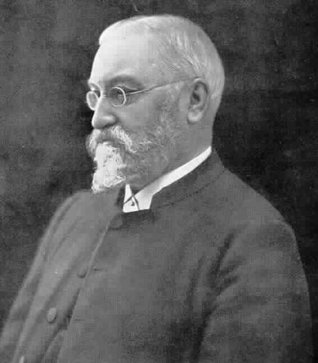- Bible
- Read the Bible
- Bible Versions
- Verse of the Day
- Reading Plans
- Verses by Topic
- Books of the Bible
- Bible Images
- Study
- Commentaries
- Concordances
- Dictionaries
- Encyclopedias
- Sermons
- Bible Atlas & Maps
- BP Wiki
- Devotionals
- Today's Devotionals
- Light of the World
- All Devotionals
- Inspirational Quotes
- More
- Picture Quotes
- Videos
- Inspirational
- Bible Study
- What The Bible Says
- Bible Q&As
- Daily Bread
- Bible by Genre
- Bible Stories
- Random Bible Verse
- Community
- Store
COMMENTARY ON REVELATION, Or The Apocalypse
by E.W. Bullinger
With a surprising number of people professing a belief that we are living in the Biblical End Times, this lively 1902 deconstruction of the Book of Revelation is even more relevant than ever. Analyzing the final chapters of the Bible on a verse-by-verse basis-and finding much to be contentious about, particularly when it comes to other interpretations of the book-Bullinger reveals a powerful, devotional way to approach Revelation. British clergyman ETHELBERT WILLIAM BULLINGER (1837-1913) was one of the most respected Bible scholars of the 19th century. He is author of numerous works including Great Cloud of Witnesses and How to Enjoy the Bible.
BUY NOW
Kindle Edition
Published (first published 1984)
© 2025 Bibleportal.com All rights reserved.

E.W. Bullinger (1837 - 1913)
was an Anglican clergyman, Biblical scholar, and ultradispensationalist theologian. In the spring of 1867, Bullinger became clerical secretary of the Trinitarian Bible Society, a position he would hold till his death in 1913. Bullinger was editor of a monthly journal Things to Come subtitled A Journal of Biblical Literature, with Special Reference to Prophetic Truth. The Official Organ of Prophetic Conferences for over 20 years (1894–1915) and contributed many articles.E.W. Bullinger was noted broadly for three works: A Critical Lexicon and Concordance to the English and Greek New Testament (1877); for his ground-breaking and exhaustive work on Figures of Speech Used in the Bible (1898); and as the primary editor of The Companion Bible (published in 6 parts, beginning in 1909; the entire annotated Bible was published posthumously in 1922). These works and many others remain in print (2004).
Ethelbert William Bullinger was born on December 15 in Canterbury, England. He was a direct descendent of the great Swiss Reformer Johann Heinrich Bullinger, a covenant theologian, who succeeded Zwingli in Zurich in December of 1531.
Bullinger was educated at King's College, London. He was a recognized scholar in the field of biblical languages. The Archbishop of Canterbury granted him an honorary Doctor of Divinity degree in 1881 in recognition of his biblical scholarship.
Dr. Bullinger believed in and taught the pretribulation, premillennial rapture. He is also considered an untradispensationalist because he taught that the gospels and Acts were under the dispensation of law, with the church actually beginning at Paul's ministry after Acts 28:28.
Dr. Bullinger died on June 6, 1913, in London, England, leaving behind a legacy of works to help in the study of God's Word.
... Show more